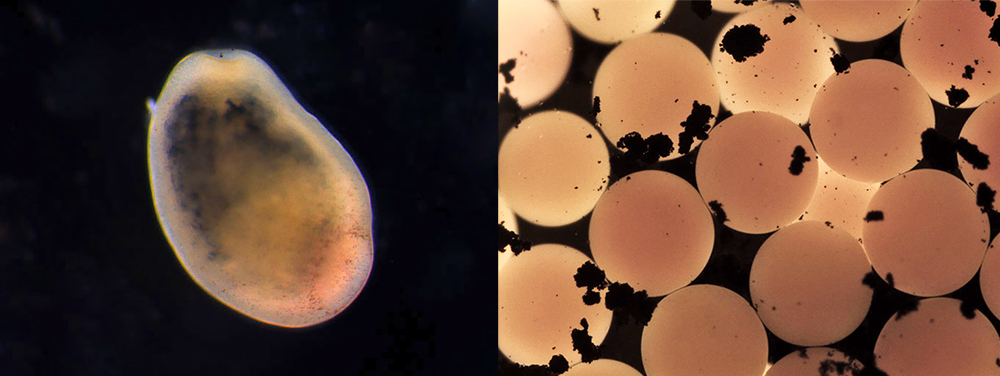A new research paper on the effects of fine coal particles on coral reproduction processes was recently accepted for publication in Marine Pollution Bulletin. The objective of the study was to gain a better understanding of the effects of suspended coal particles on the early life stages of coral.
The new study found that, while coral recruitment could be negatively affected by fine suspended coal particles – particularly during the critical fertilisation period – later life stages, including larval settlement and juvenile survival, were not substantially impacted by fine coal particles at the concentrations tested, and that coal leachate had little toxic effect on fertilization and larval settlement.
Coral larva that has ingested fine coal particles (left); unfertilized eggs and what is likely sperm/coal flocs (right). Image: K. Berry/AIMS@JCU
An understanding of the potential effects of coal on key representative species from the tropics is critical for the development of appropriate risk assessment and policy development processes relating to bulk shipment of coal through the Great Barrier Reef.
The paper “Effects of coal contamination on early life history processes of a reef-building coral, Acropora tenuis”, which will be published in the next edition of Marine Pollution Bulletin, is available as a corrected proof online.


